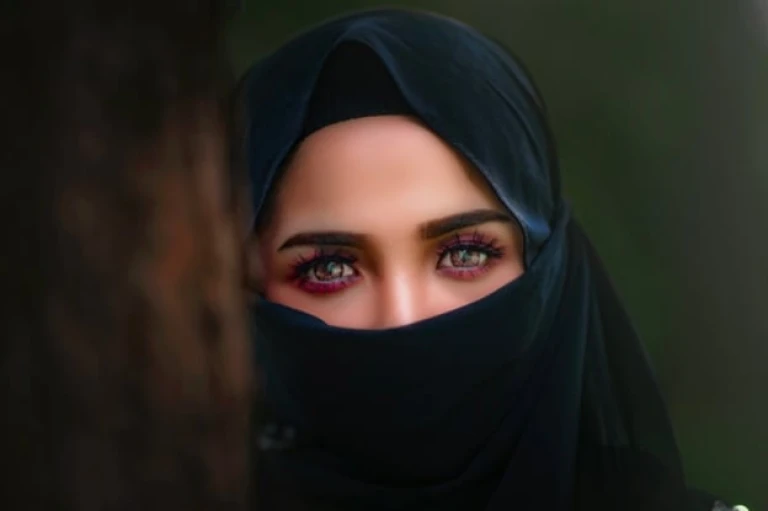Besides mountains, Sabah has so much to offer its visitors from vast clear blue waters to rare native wildlife. You will never be bored when you visit this hidden gem of Malaysia.
The Burka, Niqab, Hijab and Burkini Ban: Where’s the Justice For Muslim Women?

In the modern world today, the hijab is decidedly the most visible symbol of Islam. Since Muslim women are the ones who wear the hijab, they easily become targets of Islamophobic attacks and criticisms from non-Muslims, especially in today’s political climate.
From burka bans to burkini bans in Europe or the Americas, many Western governments or even the media have debated about the use of these distinct symbols of Islam in everyday life.
Is the hijab a tool of oppression or expression?

The naysayers hide behind the veil of the argument that the hijab is a tool of oppression of Muslim women. They stand by that the hijab is used to suppressed women’s right to their bodies. I won’t deny that there are instances of various Muslim women who had no choice in donning the hijab.
I do believe that Muslim women should be given a choice and to wear the hijab in their own time. What many don’t realise that it is a journey and everyone is different. I sympathise with women who had the hijab used to suppress them.
However, what many don’t realize is that Muslim women who choose to wear the hijab face stigmatisation and discrimination on a daily basis. If we are choosing to build a society free of oppression, then why is the same society oppressing Muslim women from expressing and practising their religion freely?
The hijab hypocrisy: different expectations for Muslim women

The other argument that champions for the removal of the hijab stand behind the thought of a secular society. They claim that to live in a society of equality is that everyone has to look the same. But how does that differ from any other suppressed or even communist regime?
Many countries including Canada, Austria, and even Singapore do not allow Muslim women to don their hijab when working in government bodies or public sectors. Recently, Quebec passed Bill 21 which bans public sector employees from wearing religious symbols during work hours. They cited that these symbols of religion might trigger the “politics of fear”.

Any government should realize that promoting such a discriminatory law creates second-class citizenship. Instead of creating an inclusive society, they are allowing the religious persecution of minority groups.
In a period of such political hostility, I understand if the government chooses to create a “neutral” environment in public settings. But it bothers me how the same expectation and ruling is not applied to other religions who might also appear to wear their religion on their head like Sikh men who wear the turban.

They don’t realize that they are also infringing on a person’s right to dress as they please with their own choosing. While arguing that the hijab is a tool of oppression, critics fail to realize that disallowing Muslim women to wear the hijab, burqa or niqab also limits our freedom of expression.
The fact that after each terrorist attack, whether it’s the mosque shooting in Christchurch or the bombings in Sri Lanka, Muslim women like myself fear for our lives because the scarves on our heads are targets for possible Islamophobia attacks. The piece of cloth that we choose to wear to protect our modesty is instead being used as a tool for spreading hatred towards Muslims.
In essence, the point of highlighting such problematic arguments behind bans of modesty among Muslim women is not to incite hatred towards governments or leaders. It’s to create awareness of problematic laws being passed in parliaments without realising the influential ramifications on Muslims. We should aim to create a society of acceptance and inclusivity, instead of using fear-mongering to divide us.
Also read: The Hijab: How Does Wearing it Make Me Feel?
Published at
About Author
Inshirah Majid
Subscribe our Newsletter
Get our weekly tips and travel news!
Recommended Articles
10 Hidden Gems of Sabah, Malaysia 10 Muslim Footballers That Will Inspire You And Your Goals HalalZilla consults the great archives of football to handpick our top Muslim players who’ve ever laced a pair of boots in the big leagues – especially those you didn’t know were Muslim!
10 Muslim-Friendly Islands in Indonesia Many travellers have either been to Bali and Lombok, or are planning a trip there – they are the most popular tourist destinations for Muslim and non-Muslim alike. . While these islands are tourist-friendly and especially Muslim-friendly, there are many other islands in Indonesia that are just as beautiful and have lots to offer. Check […]
12 Culture Shocks You’ll Experience During Umrah Welcome to the land of blessings & calmness ~
2019 Emirates FA Cup Final Winners Will Celebrate With Non-Alcoholic Champagne Regardless of the team you support, it’s heartening to know that the winners will be offered non-alcoholic champagne to cater to those who don’t drink.
Latest Articles
8 Bakery in Bandung Every Muslim Tourists Need to Visit for Their Sweet Escape A delightful array of sweet treats!
Cycling in Japan? New Fines You Should Know—Especially if You're Renting a Bike Fines up to S$108 for tourists, tsk tsk
Is It Safe to Travel to India Right Now? What Muslim Travellers Need to Know (May 2025) Do avoid Jammu, Kashmir and border areas for security purpose!
Hagia Sophia Mosque Remains Open During Dome Restoration – Travel Tips Inside! Hagia Sophia was one of the largest cathedral that is reconverted into a mosque in 2020!
New Disneyland Abu Dhabi Guide: Opening Date, Location, Attractions & Muslim-Friendly Features It's the first-ever Disney Park in the Middle East!

